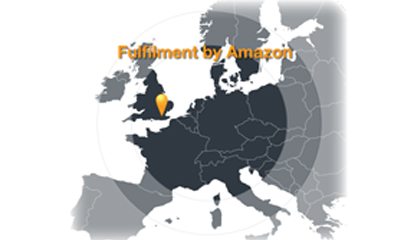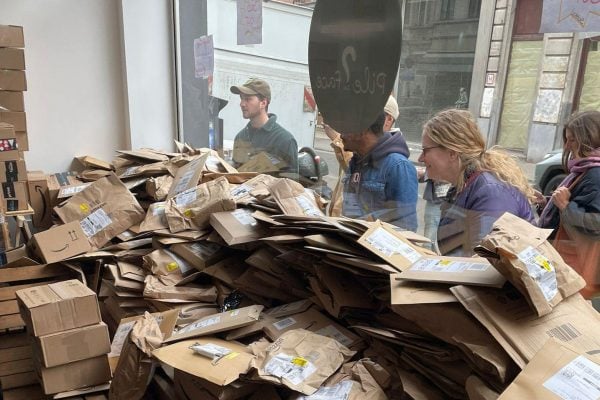 50% of items sold on Amazon’s global sites now come from third party Marketplace sellers, Amazon retail now supply less than half of all items sold on the platform. Amazon have also revealed that UK-based businesses selling on Amazon are expected to achieve export sales of more than £1.8 billion in 2016, up 29% year-on-year.
50% of items sold on Amazon’s global sites now come from third party Marketplace sellers, Amazon retail now supply less than half of all items sold on the platform. Amazon have also revealed that UK-based businesses selling on Amazon are expected to achieve export sales of more than £1.8 billion in 2016, up 29% year-on-year.
More than 60% of the tens of thousands of UK SMEs selling on Amazon Marketplace are now exporting to customers around the world. “The days of only being able to sell products to customers in one town, region or country are long gone,” Francois Saugier, Vice President of EU Seller Services explained. “Today, businesses of all sizes can easily export their products to customers across Europe and the world, and we are seeing a significant increase in the number of UK businesses capitalising on this opportunity.”
More than 60% of the tens of thousands of UK SMEs selling on Amazon Marketplace are now exporting to customers around the world and the number of UK-based Marketplace sellers exporting to European customers has increased by more than 40% in the last year.
The record 2016 export sales follow the April launch of Pan-European Fulfilment by Amazon (FBA), a service where Amazon stores, picks, packs and delivers items to customers on behalf of Marketplace sellers, who in turn can sell across Europe while only paying the local fulfilment fee of the destination country. FBA services also help sellers to grow their business by making their products eligible for Amazon Prime, meaning they will have access to millions of Amazon’s most loyal customers, along with Amazon’s trusted and acclaimed customer service.
In the UK, the number of businesses taking advantage of FBA has increased by more than 70% in the last year. By being part of FBA, Marketplace sellers scale their business and boost sales abroad, while incurring lower costs than if they invested in their own warehousing and logistical solutions.
If you’re not already heavily using FBA for your fast moving products then you are missing a trick. Unless you have unique inventory you will lose ground to your competitors selling on Amazon. Using FBA to expand overseas is an easy way to expand your business, although VAT implications are still a concern so it’s no surprise to see the EU looking at EU VAT on physical goods again this week.











2 Responses
As a company that provides FBA preparation services and fulfills Amazon Merchant orders a balanced view is always advisable here. Claims that FBA is the “silver bullet” are misleading and the following should be noted prior to switching on FBA
1: You don`t control your business – Amazon does.
2: You don`t control your branding – Amazon does
3: Comply or die – The rules of engagement are strict and robotic
4: Storage surcharges apply during peak
5: Long term storage fees apply
6: The cost to remove your goods is astronomical
7: If your product flys then Amazon will want to go Vendor Central
8: Amazon are likely to be your competition and control the buy box
9: The rules can change in a jiffy and leave your stranded
10: Your account and longevity is always under scrutiny
Just a few of the many reasons as to why using FBA is far from an open and shut case as certain articles suggest. FBA can be a roaring success but is advisable to have your website as the primary source of income wit marketplaces such as Amazon and E bay has secondary routes to market.
As a multi-user logistics and fulfilment company we have a certain vantage point that most businesses do not get to see. The key is to balance off the pros and cons before jumping into FBA as the much hyped dream ticket.